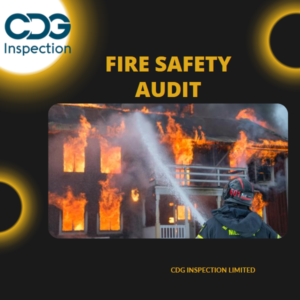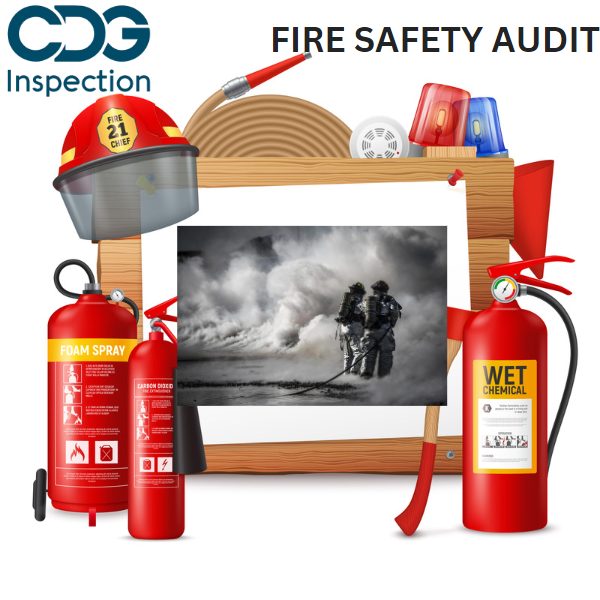Introduction:
Fire safety is crucial to maintaining a secure environment in any city. In Sonipat, a thriving city in Haryana, conducting regular fire safety audits is of utmost importance to protect lives and property. This blog post sheds light on the significance of fire safety audits in Sonipat, emphasizing the need for proactive measures to prevent fire hazards and enhance safety and preparedness.
-
Understanding Fire Safety Audits:
A fire safety audit is a systematic evaluation of a premises’ fire safety measures and protocols. It involves assessing the compliance of buildings, facilities, and procedures with fire safety regulations and industry best practices. Fire safety audits aim to identify potential fire hazards, evaluate preventive measures, and provide recommendations for enhancing safety.
-
The Importance of Fire Safety Audits in Sonipat:
Sonipat, with its rapid urbanization and diverse range of industries, faces fire-related risks that require careful attention. Conducting fire safety audits in Sonipat is essential to identify and address these risks promptly. By ensuring compliance with fire safety standards and implementing necessary precautions, fire safety audits play a critical role in preventing fire incidents and protecting the well-being of the community.
-
Key Objectives of Fire Safety Audits:
Fire safety audits in Sonipat serve several objectives aimed at enhancing safety and preparedness:
3.1. Identifying Fire Hazards:
Through a comprehensive assessment, fire safety audits help identify potential fire hazards, including faulty electrical systems, improper storage of flammable materials, blocked escape routes, or inadequate fire protection equipment. Identifying these hazards is vital to implementing corrective measures and minimizing the risk of fire incidents.
3.2. Assessing Compliance:
Fire safety audits evaluate the compliance of buildings and establishments with fire safety regulations and codes. This assessment ensures that proper safety measures are in place and followed, reducing the likelihood of fire incidents and ensuring the safety of occupants.
3.3. Testing and Maintenance of Fire Safety Systems:
Audits involve testing and inspecting fire protection systems, such as fire alarms, sprinklers, smoke detectors, and fire extinguishers. Regular maintenance and testing of these systems are crucial to ensure their proper functioning during emergencies. Fire safety audits help identify any deficiencies or malfunctions in these systems and facilitate necessary repairs or upgrades.
3.4. Enhancing Emergency Preparedness:
Fire safety audits assess the level of preparedness of premises in the event of a fire emergency. This includes evaluating the effectiveness of evacuation plans, the availability and accessibility of fire escape routes, and the training and awareness of occupants regarding fire safety procedures. Identifying areas for improvement enhances the overall emergency preparedness and response capabilities.
-
Benefits of Fire Safety Audits:
Conducting fire safety audits in Sonipat offers several benefits, including:
4.1. Prevention of Fire Incidents:
By identifying potential fire hazards and implementing recommended measures, audits significantly reduce the likelihood of fire incidents. This proactive approach helps protect lives, prevent property damage, and minimize disruptions caused by fires.
4.2. Compliance with Fire Safety Standards:
Fire safety audits ensure that buildings and establishments in Sonipat adhere to the required fire safety standards and regulations. Compliance not only promotes safety but also avoids legal penalties and liabilities for non-compliance.
4.3. Promoting a Safety Culture:
Regular fire safety audits create awareness and foster a culture of safety among residents, employees, and stakeholders. The audits encourage responsible fire safety practices, including regular training sessions, proper maintenance of fire safety equipment, and adherence to evacuation protocols.
4.4. Protection of Property and Investments:
Implementing recommended measures from fire safety audits helps protect property, assets, and investments. Adequate fire protection systems, robust emergency plans, and compliance with safety standards contribute to reducing the risk of significant financial losses due to fire incidents.
Conclusion:
Fire safety audits are instrumental in ensuring the safety and well-being of Sonipat’s residents and businesses. By conducting regular audits, potential fire hazards can be identified, compliance with safety regulations can be ensured, and emergency preparedness can be enhanced. These proactive measures contribute to preventing fire incidents, protecting lives, and safeguarding property. Emphasizing fire safety audits in Sonipat is crucial for building a resilient and secure city for all its stakeholders.

